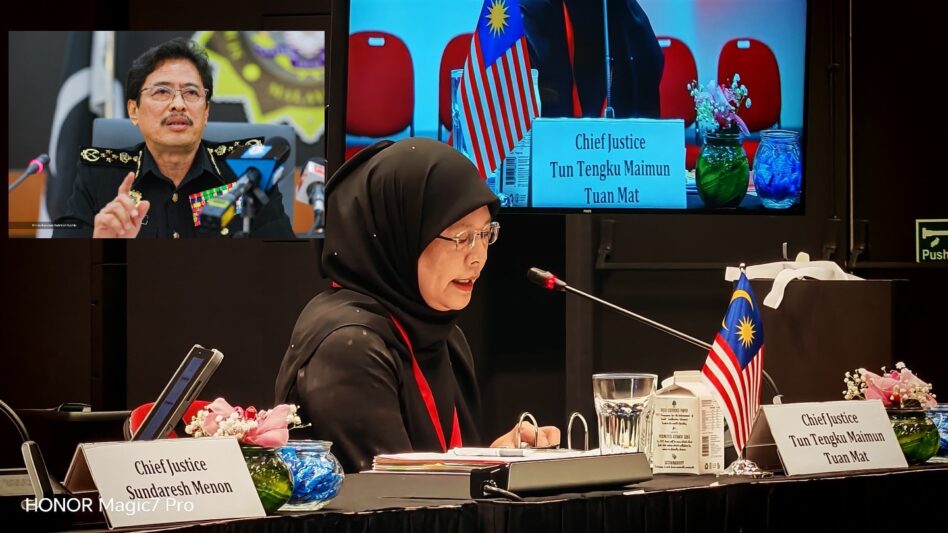MALAYSIA is a multi-ethnic and multicultural nation, home to Malays, Chinese, Indians, and indigenous communities, each contributing to the country’s identity.
While this diversity is often celebrated, it also presents ongoing challenges in maintaining racial harmony. Tensions between ethnic groups have, at times, led to social unrest and deepened mistrust.
Despite numerous government-led initiatives aimed at fostering unity, the absence of a robust legal framework to address racial discrimination remains a glaring gap.
In this context, Malaysia should consider adopting legislation inspired by the United Kingdom’s (UK) Race Relations Act of 1976 to provide legal protection against discrimination, promote social integration, and strengthen national unity.
The UK Race Relations Act was a significant milestone during its era. It tackled both direct and indirect racial discrimination in key areas such as employment, education, housing, and public service provision.
This legislation not only rendered racial discrimination unlawful but also created legal avenues for individuals to contest unjust treatment.
For Malaysia, enacting a comparable law would represent a vital transition from mere rhetoric to tangible action, converting the principles of equality into enforceable rights.
Currently, Malaysia does not have a dedicated anti-discrimination law focused on race. While the Federal Constitution guarantees equality before the law, practical enforcement is inconsistent, and racial inequalities persist in everyday life.

In sectors such as employment and education, anecdotal and statistical evidence often point to disparities between different ethnic groups.
For example, hiring practices that favour one ethnic group over another or unequal access to quality education for minority communities are ongoing concerns.
A Race Relations Act would help close this gap by offering victims a legal avenue to report and seek redress for discriminatory practices.
One of the notable strengths of the UK Race Relations Act lies in its proactive approach to promoting equality.
Rather than being purely punitive, it mandates institutions to prevent discrimination before it occurs.
Malaysia could adopt this approach by requiring both public and private institutions to develop inclusive policies and actively ensure representation of all ethnic groups in employment, leadership, and education.
Targeted support for disadvantaged groups such as indigenous peoples or low-income communities from any ethnic background could be part of a broader affirmative action policy that prioritises socio-economic need over racial categorization.
Furthermore, the role of education in shaping race relations cannot be overstated. The UK’s legislation encouraged schools to embrace diversity and integrate anti-racism education into the curriculum.
Malaysia’s education system, while promoting national unity in theory, often remains segmented along linguistic and cultural lines, which can unintentionally reinforce division rather than unity.
By embedding cross-cultural understanding, mutual respect, and anti-discrimination awareness into the national curriculum, Malaysia can help young Malaysians grow up with a stronger sense of shared identity and empathy for different communities.
To effectively enforce race-related laws, Malaysia also needs an independent institution focused specifically on racial equality.
The UK established the Commission for Racial Equality (CRE) to monitor compliance with the Race Relations Act, investigate complaints, and recommend policy changes.
In Malaysia, while SUHAKAM (the Human Rights Commission of Malaysia) plays an important role in defending human rights, it lacks a specific mandate to address racial discrimination in a comprehensive manner.
A specialised commission could ensure that race-related issues receive the focused attention they deserve.
This body should be empowered to conduct investigations, issue public reports, handle complaints, and provide guidance to both the public and private sectors on compliance.
In the context of Malaysia, any effort to introduce such legislation must consider the country’s socio-political landscape.
The political history of Malaysia has been significantly influenced by race-based parties and policies designed to address historical economic disparities. However, these measures have also raised issues regarding preferential treatment and feelings of exclusion among certain communities.

It is essential that any Race Relations Act implemented in Malaysia is grounded in principles of inclusivity, equity, and justice for all, ensuring that no single group is favoured over another.
The emphasis should transition from race-based benefits to support that addresses the needs of all marginalised communities.
Furthermore, the enforcement of the law must be conducted in a fair and transparent manner. Any selective enforcement or politicisation of anti-discrimination laws could undermine public confidence and exacerbate inter-ethnic tensions.
Thus, it is imperative that any legislation is accompanied by a robust commitment to impartiality, public accountability, and civic participation.
Engagement from civil society organisations, religious leaders, educators, and community groups is vital in fostering the values underpinning the legislation.
Recent incidents related to race in Malaysia highlight the pressing need for such a legal framework. Racial tensions continue to surface in political discourse, social media discussions, and community conflicts.
In the absence of legal remedies, many individuals affected by these issues feel disenfranchised and marginalised.
A Race Relations Act would convey a strong message that the nation is committed to equality and that discrimination, whether institutional or personal, will not be tolerated.
The future of Malaysia’s social cohesion depends not only on goodwill but on institutional structures that protect and uplift every citizen equally, regardless of race or ethnicity. – April 11, 2025
R. Paneir Selvam is the principal consultant of Arunachala Research & Consultancy Sdn Bhd, a think tank specialising in strategic national and geopolitical matters.
The views expressed are solely of the author and do not necessarily reflect those of Focus Malaysia.
Main image: The Leaders Online









